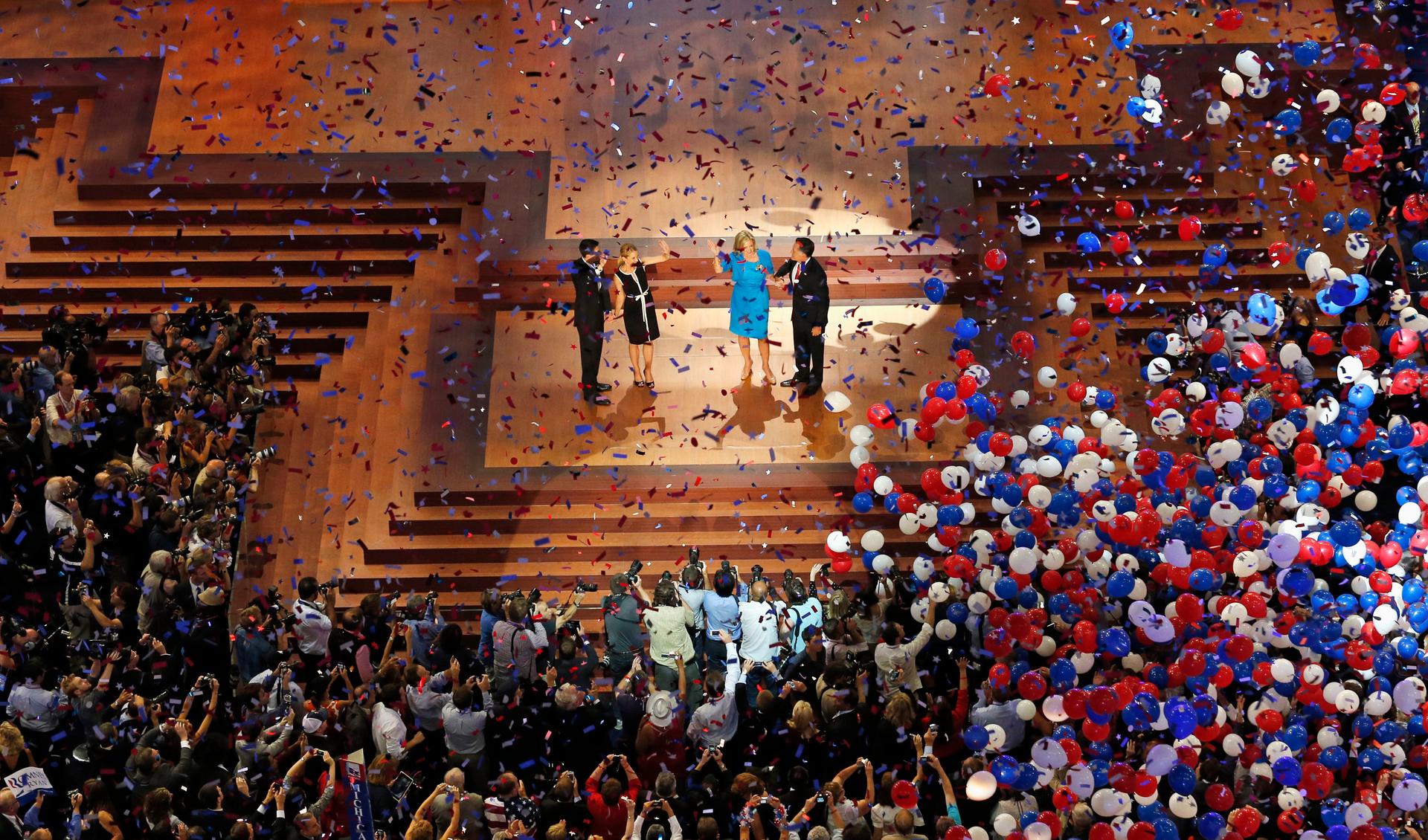Statistical analysis of voters’ opinions presents slightly different picture of election
Republican presidential nominee Mitt Romney is joined by his wife Ann and vice presidential running mate Paul Ryan is joined by his wife Janna after Romney’s acceptance speech during the final session of the Republican National Convention in Tampa, F
Campaign season is full of statements about values, priorities and other things that are hard to quantify.
But what sort of picture of the political climate would you get if you looked at it through the lenses of statistics and mathematical analysis?
Lynn Vavreck, a professor of political science at UCLA, and author of the upcoming book “The Gamble,” found that undecided voters aren’t waiting for a major campaign event to make up their minds, that the economy may be helping President Barack Obama more than we think and that Mitt Romney’s candidacy was never in doubt.
In general, Vavreck found that undecided voters are a little less interested in politics, a little less likely to be an ideologue and a little less partisan. But most of them are actually partisans, she said. In fact, only 30 percent of undecided voters call themselves independents who don’t lean one way or another.
Vavreck’s data comes from 1,000-person surveys collected every week from Jan. 1 to Election Day. It’s collected online and then Vavreck and her co-author, John Sides, analyze it immediately, though the book isn’t expected to come out until next summer.
In terms of independents, though, the data that’s come in shows they really aren’t so different from other voters — at least not in what matters to them and enables them to choose a candidate. Rather, they’re just not in such a hurry.
“They’re just making up their minds a little later. They’re not aliens. They’re not really different from the rest of the people who are making up their minds early,” she said.
But just because they’re deciding last, Vavreck said, it doesn’t mean they’re really a major deciding factor in elections.
“The way that the ‘decided’ voters have broken is really what’s fundamental to the outcome of the election,” she said. “Purely in terms of the timeline, these undecided voters are going to matter. But I think it’s just a little bit of a cheap shot to say they are the critical part because they’re deciding last.”
Vavreck has been sharing that and other data analysis on a blog, which has allowed her to get instant feedback that she can incorporate in her book, she said.
One of the most interesting things Vavreck said she’s learned so far is that Obama is more popular among voters then his economy would predict.
“If we look at the last 60 years of elections and we look at the economies incumbent presidents had, … we see (Obama) outperforming his economy,” she said. “Our prediction is that Obama is advantaged by the economy. People seem to forget the economy is growing. It’s growing slowly, but it is growing. Incumbent presidents in growing economies, even very slowly, are very hard to beat.”
Every day, reporters and producers at The World are hard at work bringing you human-centered news from across the globe. But we can’t do it without you. We need your support to ensure we can continue this work for another year.
Make a gift today, and you’ll help us unlock a matching gift of $67,000!
